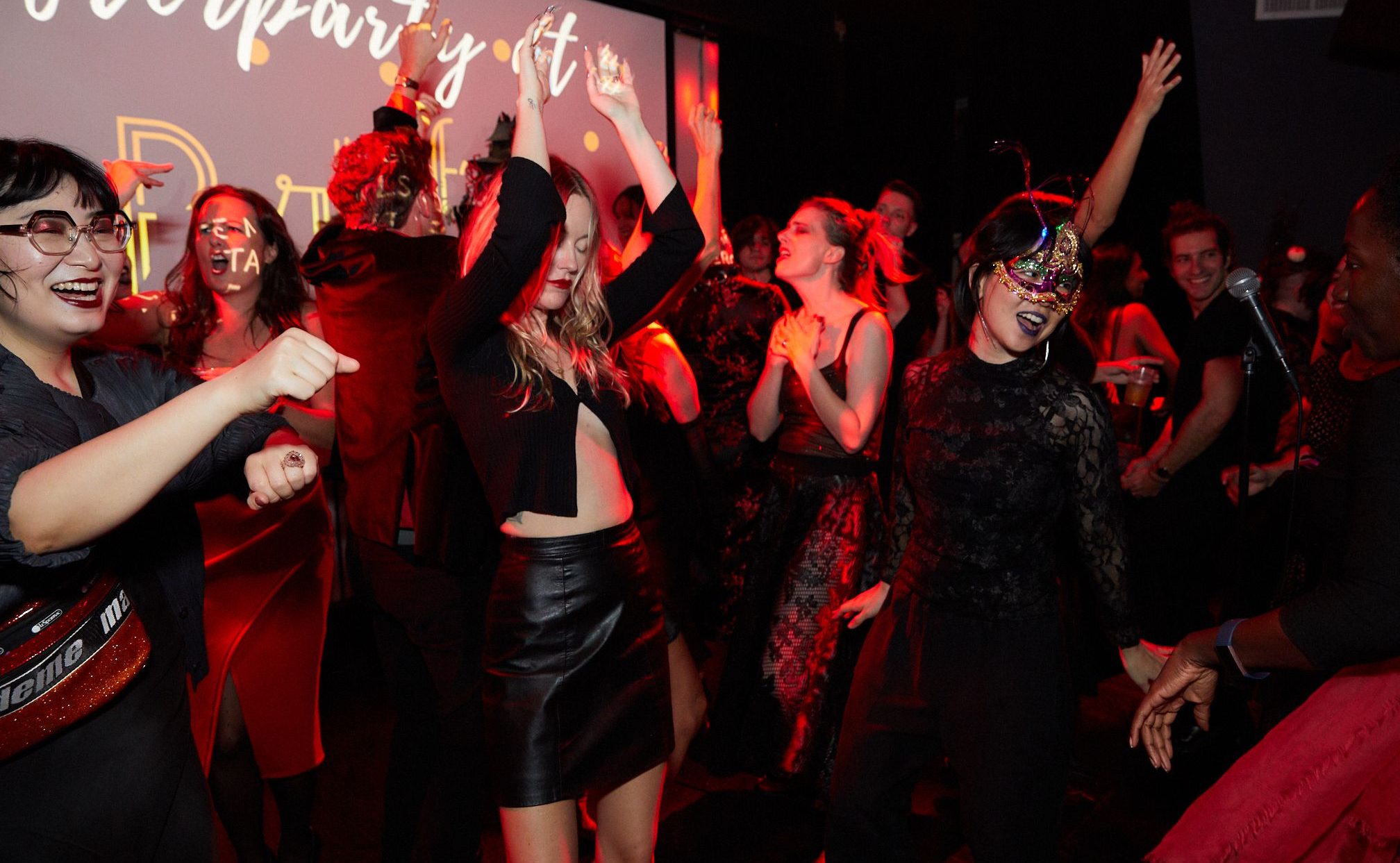news
From P-Town… Sack Up: Chris Hedges and Joe Sacco at Powell’s

1. Powell’s on a cloudy day. It looks pretty much the same on a sunny day. 2. Steve and Heather were skeptical, but I did fit into the tiny space next to them. 3. David loves the way Sacco uses comics to tell a story and was excited about the huge turn-out.
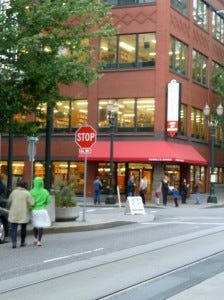
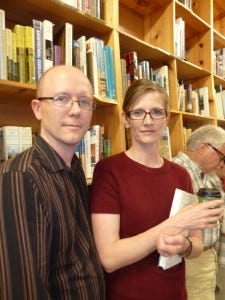
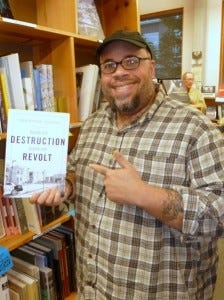
The Chris Hedges and Joe Sacco event on Monday started like a lit event and ended like a rally.
Powell’s locked the doors when the room hit capacity, which was about fifteen minutes before the reading. I found a toothpick-sized space to stand along the wall next to a couple who didn’t trust me and a friend of Sacco’s who just opened a faux museum. The guy sitting on the floor in front of me was reading a comic book.
1. The reading didn’t start for another thirty minutes. 2. Sacco and Hedges listen to Kevin Sampsell as he introduces them.
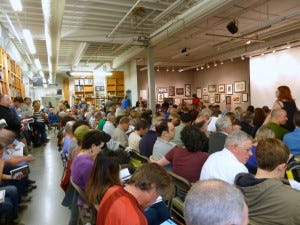
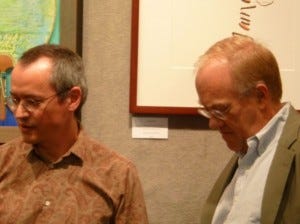
Seasoned reporters of war and conflict, Hedges and Sacco, collaborated on Days of Destruction, Days of Revolt, which examines extreme poverty in the United States. These guys have seen the world at its worst as part of their day jobs. I expected a galvanized perspective, unique from my own, and I figured I’d feel guilty about not doing more for whatever causes were tied to the talk.
Hedges stepped up to the podium and delivered a series of facts, observations, proof points, and conclusions, which I paraphrased as “We’re fucked.” I gave myself imaginary high-fives each time I followed the line of reasoning all the way through. At one point, I wondered if I was an anarchist. At another point, I thought I understood anarchism in a new way. Hedges said moral nihilism was the point in which no impediments are left to corporate capitalism. That is directly from my notes. I probably came up with the anarchist stuff on my own.
1. Tom Richards, curator of The Faux Museum, who partnered with Sacco in the mid-’80s on The Portland Permanent Press, a monthly comics newspaper. 2. Eric has read a lot of Sacco’s work. I’m not sure what he’s reading right now. 3. A Vietnam vet in the crowd saying: We have got to hit the streets. If we don’t hit the streets, we’re doomed.

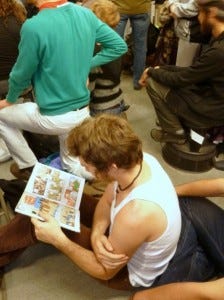
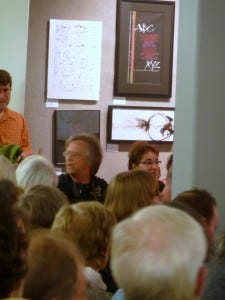
Sacco shared a few pages from the book, which represented different sacrifice zones within the United States. Hearing the backstory for each of the panels shown on the screen helped me appreciate their nuances. I remembered some of Art Spiegelman’s 2011 Portland Arts & Lectures talk, “What the @!#* happened to comics?,” as he spoke.
While Hedges provided an overview of economic/social/political cause and effect, Sacco singled out individual circumstances. Here is a man who has lived in Camden, NJ his whole life. Here is a woman whose fiancé was murdered the day before her wedding. These houses are typical for this area. This worker was chained inside a trailer and forced to work or his family back home would be killed.
1. Hedges delivering the “Hey, we’re all fucked” prologue portion of the talk. 2. The AV portion of the show.

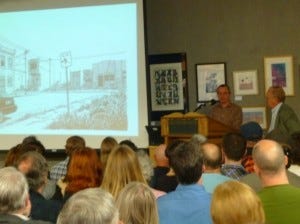
Lots of heads tilted to the left on that last one. Hedges added some comments about corporate neo-feudalism, the replication of slavery. Then they showed the last image, Zuccotti Park, which is the Days of Revolt part of the book.
1. Patrons pawing the hot, post-talk property.
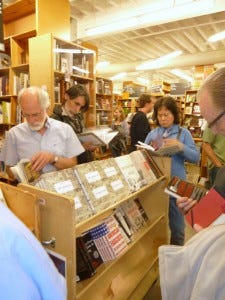
During the Q&A, Hedges talked about non-violent revolutions in Russia and East Germany and encouraged the crowd to challenge centers of authority. A percentage of the crowd wanted to plan and coordinate the effort, maybe get some feedback on how to do things. A few political points were clarified regarding presidential records and recent litigation. Voices were calibrated with emotion and carefully-asked questions sometimes reverted into thoughts spoken with varying levels of conviction. This was when I started to get that rally feeling.
At one point, Hedges described the TB scars in his throat as “whispers of the dead,” which made me wonder how my own views of the world would change if I had witnessed war atrocities, like he has done. Then he read an article describing how his views have changed as a result of these experiences, which answered that question for me.
The crowd didn’t take to the streets immediately after the reading, but a lot of them stood in line to buy the book.
***
— Judith Ossello currently lives and writes in Portland, Oregon. Find her at www.writerloop.com.







